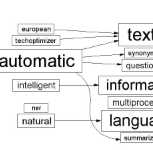Automatic summarization methods are efficient but can suffer from low quality. In comparison, manual summarization is expensive but produces higher quality. Can humans and AI collaborate to improve summarization performance? In similar text generation tasks (e.g., machine translation), human-AI collaboration in the form of "post-editing" AI-generated text reduces human workload and improves the quality of AI output. Therefore, we explored whether post-editing offers advantages in text summarization. Specifically, we conducted an experiment with 72 participants, comparing post-editing provided summaries with manual summarization for summary quality, human efficiency, and user experience on formal (XSum news) and informal (Reddit posts) text. This study sheds valuable insights on when post-editing is useful for text summarization: it helped in some cases (e.g., when participants lacked domain knowledge) but not in others (e.g., when provided summaries include inaccurate information). Participants' different editing strategies and needs for assistance offer implications for future human-AI summarization systems.
翻译:自动总结方法效率高,但质量低。比较而言,人工总结成本高,但质量高。人类和大赦国际能否合作改进总结性工作?在类似的文本生成任务(例如机器翻译)中,人工与大赦国际以“编辑后”方式进行的合作减少了人的工作量,提高了AI产出的质量。因此,我们探讨了编辑后的结果是否在文本总结方面带来优势。具体地说,我们与72名参与者进行了实验,比较了编辑后提供的摘要与人工总结性摘要的比较,这些摘要涉及摘要的质量、人的效率和用户在正式(XSum新闻)和非正式(编辑文章)文本方面的经验。这项研究对编辑后对文本总结有用时提供了宝贵的见解:在某些情况下(例如,当参与者缺乏域知识时),但在其他情况下(例如,如果提供的摘要时包括不准确的信息),这有帮助作用。与会者不同的编辑战略和援助需求为未来的人类-AI总结系统提供了影响。





